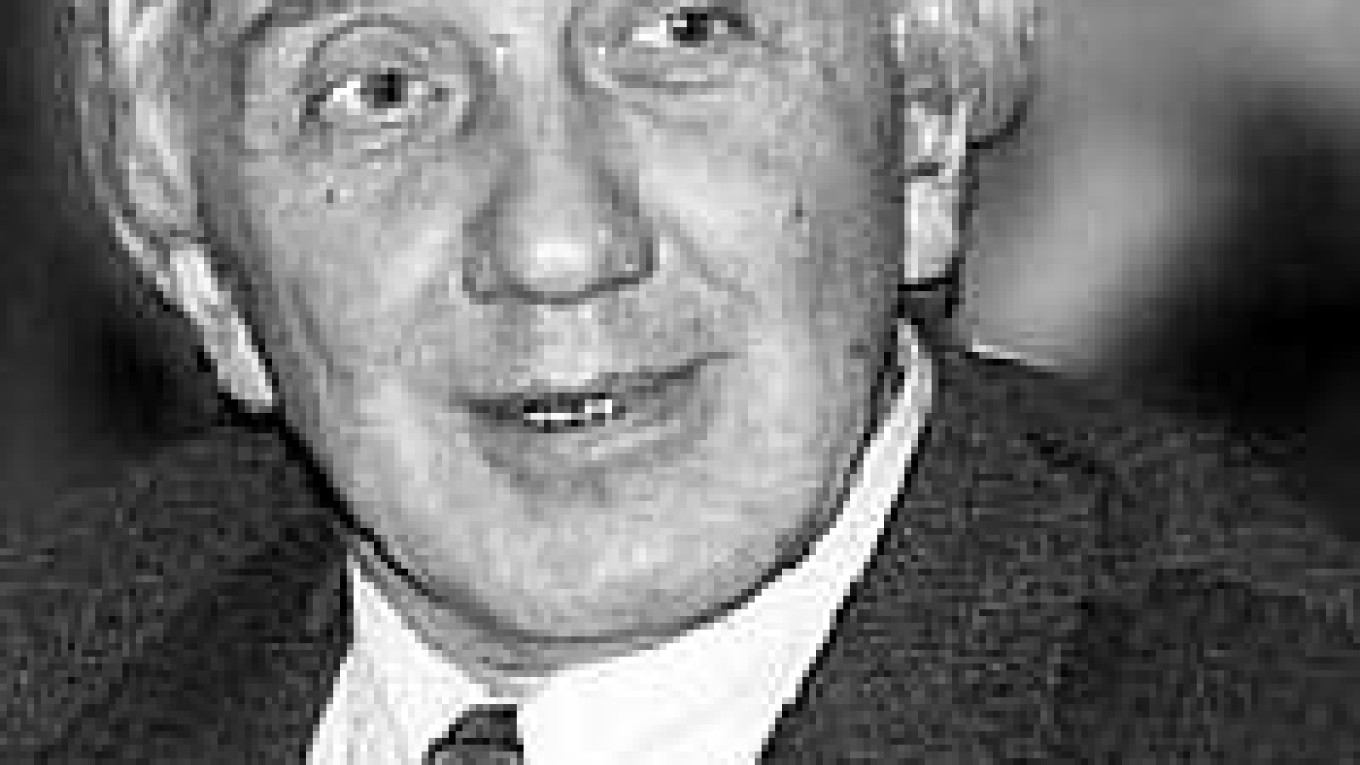Allegations by Yushchenko supporters of Russian involvement in the poisoning have emboldened Kremlin critics who claim poisoning is a common Soviet-era practice that seems to have reappeared since former KGB officer Vladimir Putin took the presidency.
"The list is rather long, and since Putin assumed power in Russia, poisoning has been one of the preferred political tools used by the Kremlin," said Pavel Felgenhauer, an independent military affairs analyst.
One of the most prominent cases is that of Yury Shchekochikhin, a liberal State Duma deputy and journalist who crusaded against corruption and died in July 2003 after apparently suffering a severe allergic reaction. Colleagues suspect he was poisoned, probably in connection with his reports on a case involving customs officials and allegations that the Tri-Kita furniture store evaded millions of dollars in import duties.
The Prosecutor General's Office told Shchekochikhin's colleagues at Novaya Gazeta newspaper and in the Yabloko party that there was no evidence he was poisoned, Yabloko spokeswoman Yevgenia Dilendorf said. But she said a British laboratory that conducted tests as part of a probe by the paper and the party found signs of poisoning.
"We unequivocally believe that Shchekochikhin was poisoned," said Vyacheslav Izmailov, a reporter and columnist at the paper.
Izmailov said the same was true for Anna Politkovskaya, a Novaya Gazeta journalist and Kremlin critic who fell seriously ill with symptoms of food poisoning after drinking tea on a flight from Moscow to Vladikavkaz during the school hostage crisis in Beslan. At least two other journalists accused authorities of trying to stop them from covering the crisis. Izmailov points a finger at state intelligence agencies such as the Federal Security Service, or FSB, the main successor of the KGB.
He and Felgenhauer also said that Chechen rebels held in Russian jails have been poisoned. While those cases have not been confirmed, the FSB has said its operatives killed Omar Ibn al-Khattab, a Saudi-born militant who fought with the rebels in Chechnya and died in 2002. Khattab's relatives say he was poisoned.
"Poisoning is not the only method the security services use to remove people who are inconvenient for them, but it's one of them," Izmailov said.
Felgenhauer said federal security forces showed their propensity for using toxic substances when they pumped a knockout gas into the Dubrovka theater seized by Chechen rebels in 2002. Most of the 129 hostage deaths were attributed to the effects of the gas.
"These substances were mostly developed during Soviet times, under the auspices of the KGB," Felgenhauer said. "And the specialists who designed these kinds of poisons and ways of applying them were trained during Soviet times."
The most notorious Soviet-era case of political poisoning allegedly involving the KGB was that of Bulgarian defector Georgy Markov, who died in London in 1978 after a pellet containing ricin was injected into his thigh -- purportedly by a jab with a rigged umbrella.
The alleged cases of poisoning in former Soviet countries are not limited to Russia.
In Belarus, where many critics of authoritarian President Alexander Lukashenko have disappeared and are feared dead, the wife of opposition leader Gennady Karpenko has claimed her husband was poisoned shortly before he died in 1999.
Yushchenko associates speculate that Russian or former KGB agents may have been involved in poisoning the candidate. Yushchenko fell ill in September and has campaigned with his face disfigured by what doctors who treated him in Austria said was dioxin poisoning.
Supporters say Yushchenko's opponents wanted to kill him or sideline him from the race against Prime Minister Viktor Yanukovych, who was backed by outgoing President Leonid Kuchma and by the Kremlin. The two candidates will contest the presidency in a new Dec. 26 ballot called after the Supreme Court ruled their Nov. 21 runoff fraudulent.
Some suspected poisonings do not appear politically motivated but rather related to business vendettas. Around the same time Yushchenko was sickened, a prominent St. Petersburg businessman died after suffering symptoms of severe food poisoning.
Russian media reported that Roman Tsepov, whose bodyguard agency once provided security to Putin when he was an official in the St. Petersburg city administration, was murdered with a massive dose of a leukemia drug -- after surviving three assassination attempts in the 1990s.
Prosecutors said Tuesday that they have not confirmed Tsepov was poisoned.
The small but growing list of suspected cases shows that poisoning is "not random -- that it's a way of dealing with political leaders," Dilendorf said. "It means that it's possible to dispose of anyone and go unpunished -- absolutely unpunished. And it's very hard to prove."
A Message from The Moscow Times:
Dear readers,
We are facing unprecedented challenges. Russia's Prosecutor General's Office has designated The Moscow Times as an "undesirable" organization, criminalizing our work and putting our staff at risk of prosecution. This follows our earlier unjust labeling as a "foreign agent."
These actions are direct attempts to silence independent journalism in Russia. The authorities claim our work "discredits the decisions of the Russian leadership." We see things differently: we strive to provide accurate, unbiased reporting on Russia.
We, the journalists of The Moscow Times, refuse to be silenced. But to continue our work, we need your help.
Your support, no matter how small, makes a world of difference. If you can, please support us monthly starting from just $2. It's quick to set up, and every contribution makes a significant impact.
By supporting The Moscow Times, you're defending open, independent journalism in the face of repression. Thank you for standing with us.
Remind me later.


